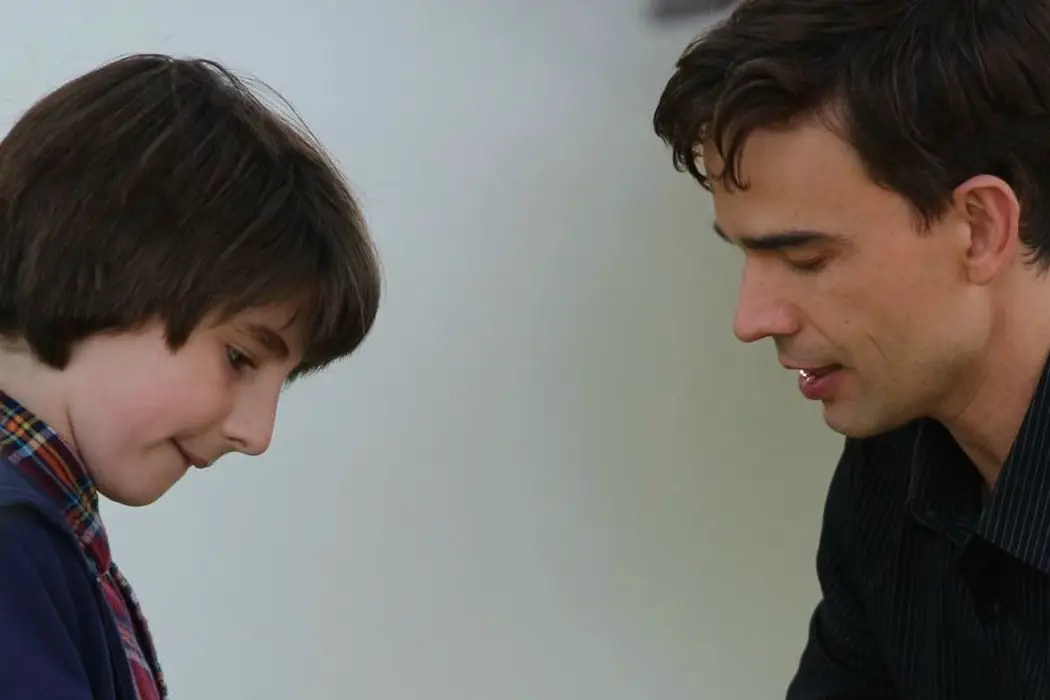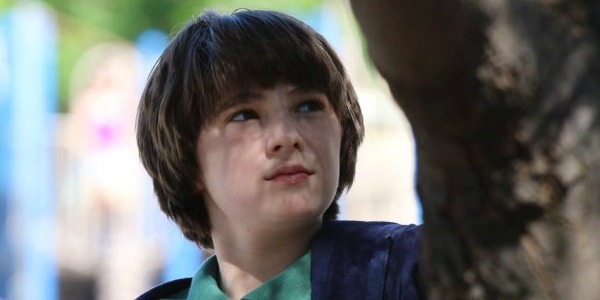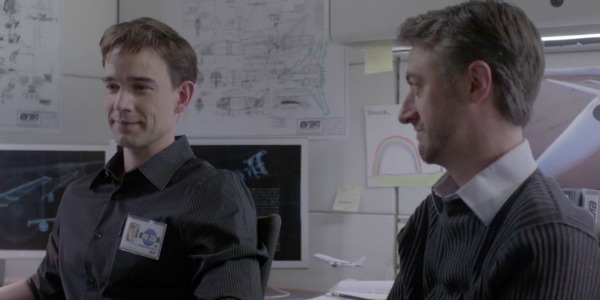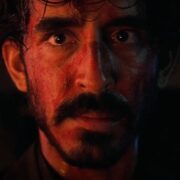A BOY CALLED PO: A Personal Film Hidden Behind Overused Tropes

Amanda Mazzillo is a writer with an MFA in Dramatic…
A Boy Called Po should have been a more realistic exploration of autism, but instead, it falls into the common tropes surrounding the depiction of autism in Hollywood films. The director, John Asher, has an autistic son, and considers the film a sort of love letter to him. This personal experience should have made this film a unique entry into films based around autism, but it fell into the same sort of cliche-ridden traps.
A Boy Called Po follows David (Christopher Gorham), a single father who is left raising his son Po (Julian Feder) after his wife dies from cancer. The film does not go into much detail. It begins with David attending the funeral without Po, losing his chance to grieve with his son.
Treating Illness as Magical
Instead of treating the illness as something real, the film looks at it as something magical leading Po into a fantasy world. At first, I thought it was an interesting structure to A Boy Called Po; an way to show the drifting off associated with autism. The film paints the fantasy sequences in too magical a light, the importance of what is being discussed is hidden away. It’s not until near the end of the film when Po feels his fantasies are not as perfect as he thought, and it’s such a quick moment, you never really feel he’s made an active choice to leave his fantasies behind and join his father in grieving.
I enjoyed the structure of A Boy Called Po, especially in regards to the transition into his magical world. The use of a scarf his mother left behind was one of the details in the film which felt realistic. Po using his mother’s scarf seems like an accurate depiction of his grief and escapism. When Po put the scarf over his head, the film would transition into Po’s magical world, where he was just a carefree child running along the beach.

One of my problems was how the fantasies became more and more complicated and focused on escaping and leaving his father behind. At the beginning, the trips into his fantasies were simple and focused almost entirely on his mother, and where she used to take him when she was alive. When Po’s fantasies were intimate and seemed to draw from his bond with his mother, I enjoyed them. I felt they were a nice way to incorporate Po’s drifting, as well as highlight the grief both Po and David were facing everyday.
A Good Film About Acceptance Hidden Within
A Boy Called Po is largely focused on David making decisions he feels are the best for his son, without really thinking things through. While I was watching the film, I thought it was going to go in one direction, but when it veered off again, I felt the film lost most of its message. Early on, David is seen ignoring child services, therapists, teachers, all in the guise that he knows what is best for his son. I thought this was the first step in a journey of David discovering it’s okay to not always know what to do. It’s fine to ask others for help, especially if getting help is the best choice for the situation.
During A Boy Called Po, I thought it was leaning towards David discovering sending his son to therapy, or a more equipped school, does not mean he’s a bad father. And at one point, the film was pushing in this direction, before jumping away and ending on a completely different note. Instead of telling a story of acceptance and respect of medical professionals, A Boy Called Po takes a more sentimental route of family being all you need to succeed. This can be the case, but the story the film was telling throughout was of a child who needed additional assistance, and started blossoming when he attended therapy.

The ending is another instance of the Hollywood treatment of illness. Po runs away from the facility David put him in, which has David and the other characters blaming the facility. Instead of discussing Po’s condition and the earlier scenes of David floundering in taking care of his son, A Boy Called Po ends with Po choosing to leave his dream world in order to grieve with his father, instantly becoming a child ready to take on public school and leave his therapy behind.
An Unnecessary Romantic Side-Plot
As A Boy Called Po went along, David was being pushed in different directions, which felt like just a way to add more drama to the story. I felt his scenes at work, where he was designing a plane with his co-worker, Ben (Sean Gunn), were a good way to add drama and moments of comedy, without feeling forced, but the romance which comes to focus a little further into the film feels unnecessary and takes away from the main focus of the film – the relationship between Po and his father.
Something rubbed me the wrong way when I realized A Boy Called Po was going in the direction of David dating his son’s therapist Amy (Kaitlin Doubleday). This side-plot added nothing to the film, other than another way for David to forget visiting his son once he admitted him to a facility. This plot also makes me wonder if the facility was really to blame for Po’s reluctance to stay, or if it was David’s wandering focus which made Po unwilling to give it a chance.

The side-plot of David and his co-worker working on a plane together was a better way to add more drama to A Boy Called Po because it felt natural. Seeing David’s bosses disrespect him for trying to take care of his son, instead of focusing all his energy on his job is something we see everyday in single parent situations. Having this plot tie up at the end and work to bring David and Po closer was a nice use of overly sentimental Hollywood storytelling.
The relationship between David and Ben felt realistic. It wasn’t a major focus in the film, but I enjoyed the scenes focusing on their friendship. Sean Gunn gave a good performance as the close friend, trying to help his friend out through the hard times. Christopher Gorham‘s performance also felt more natural during these scenes, which made me wish we saw more of him at work. This might have made the main focus of A Boy Called Po feel more realistic, if we saw more of the father before his wife died. I felt we didn’t really know him as a character, and only had tiny glimpses through the scenes of him at work.
A Boy Called Po: Conclusion
A Boy Called Poe had the potential to be a deeply personal and realistic exploration of autism, but fell prey to the common tropes of Hollywood depictions of the mental illness. The performances were strong, and helped me feel engaged throughout the film, but the ending cheapened the experience. In typical sentimental cinema fashion, A Boy Called Po ends on this note: the love between a father and son is the only cure.
Do you think this film is an accurate depiction of autism? Do you think any past films have been able to accurately explore autism? Tell your thoughts in the comments below!
A Boy Called Po will be released in the U.S. on September 1, 2017. For all international release dates, see here.
Does content like this matter to you?
Become a Member and support film journalism. Unlock access to all of Film Inquiry`s great articles. Join a community of like-minded readers who are passionate about cinema - get access to our private members Network, give back to independent filmmakers, and more.
Amanda Mazzillo is a writer with an MFA in Dramatic Writing from SCAD and a BA in Writing & Linguistics and Film Studies minor from Georgia Southern University. She enjoys writing comedy and exploring all forms of media. Her Twitter name is a bad pun: @mazzillofirefox












